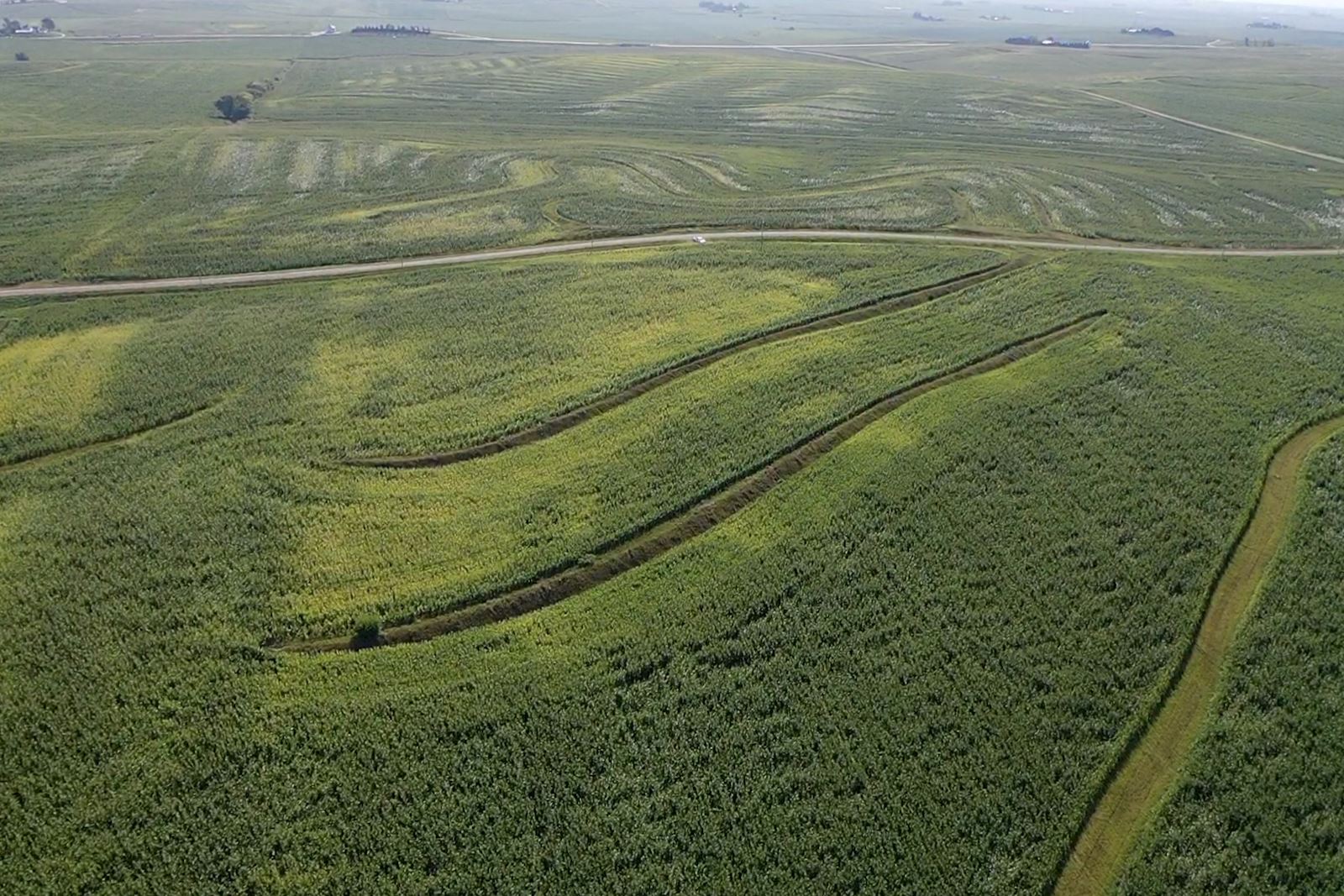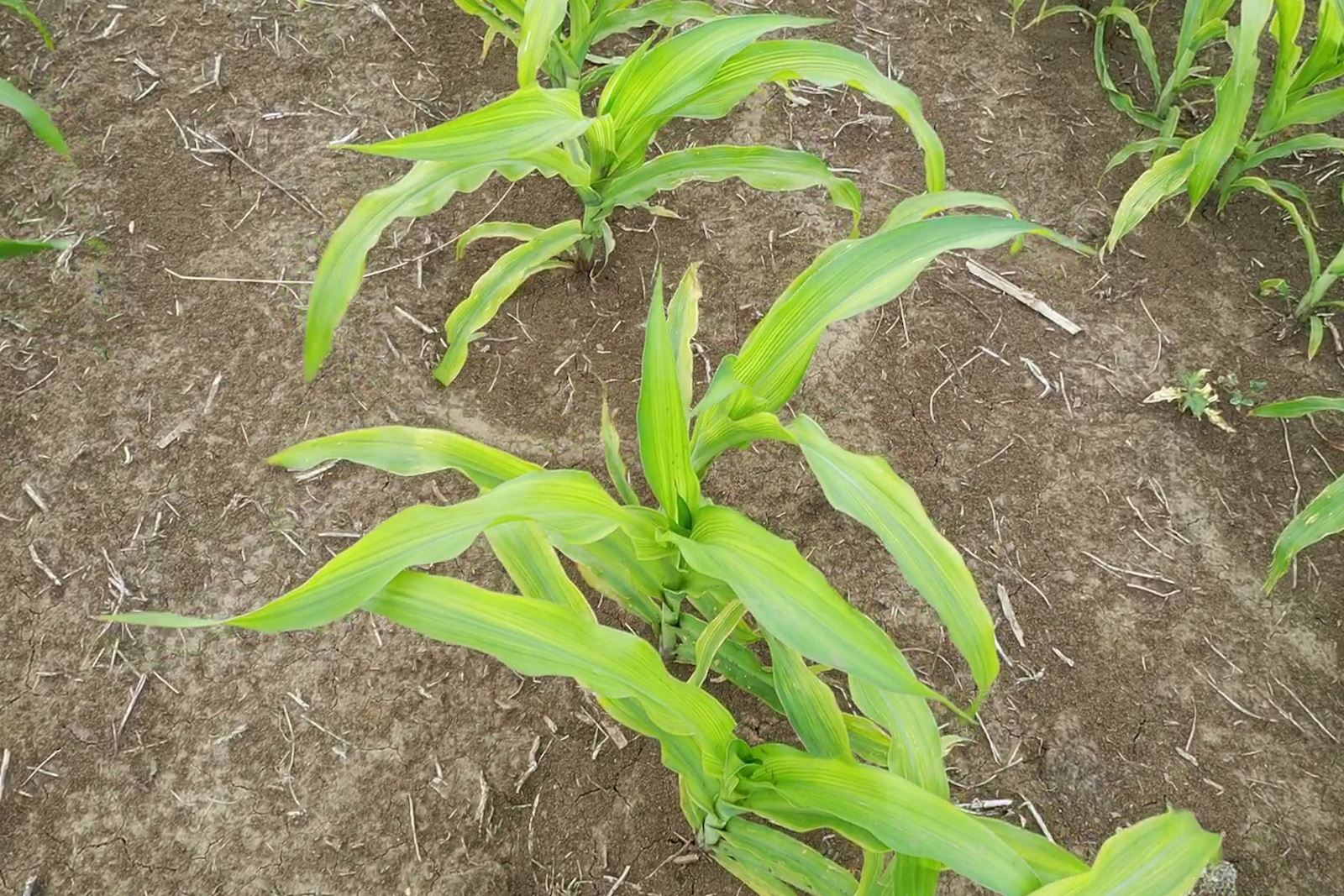December 4th, 2020
posted
on 12/4/2020
in
Weekly Newsletter

December 4th, 2020
This week we will be talking about crop fertility. We will specifically be covering sulfur and it's importance to crop growth.
Sulfur's Role in Crop Growth
Sulfur is an essential nutrient for crop development. Like nitrogen, sulfur is used as a component of several amino acids which form proteins and enzymes. These enzymes are used to speed up chemical reactions in a plant. A lack of enzymes in a plant leads to slower chemical reactions within the plant and less efficient crop development. Proper sulfur fertilization allows a crop to grow and develop more efficiently to maximize yield potential.
Sulfur Deficiency
Sulfur deficiencies in corn are starting to be a more common occurrence. The photo below is a an aerial shot of a corn field showing signs of sulfur deficiency from this summer.

Deficiency symptoms can be easily mistaken for nitrogen deficiencies. Both appear as yellowing of the plant. To differentiate between the two, sulfur deficiency appears as yellow striping typically on the upper leaves of the plant. Sulfur is immobile within a plant so symptoms usually start to show in the new growth towards the top of a plant, especially in corn. Nitrogen typically shows the most intense symptoms towards the bottom of the plant in the older growth.
As a typical rule of thumb, by the time you actually start to see nutrient deficiency symptoms in a crop, yield has already been negatively effected. The picture below shows a V9 corn plant that is showing sulfur deficiency symptoms.

Sulfur Fertility
Sulfur fertilizers are more necessary now than ever. In the past, rainfall contained minute amounts of sulfuric acid from pollution sources. This acid rain actually supplemented several pounds of sulfur per acre throughout the growing season. As we have decreased our pollution, the amount of "free" sulfur we received has also decreased. This has led to more sulfur deficient fields and a need to apply sulfur fertilizers.
Sulfur fertilizers commonly contain sulfur in the form of sulfate. Plants readily take up sulfur as sulfate (SO4 -). Since sulfate has a negative charge it is mobile in the soil. As such, it is important to time applications ahead of a crop. In the past several years we have been applying sulfur in a banded application with the dual placement bars or broadcasting it with the spreader. You can also apply sulfur as a liquid in the form of ATS (ammonium thiosulfate). This allows the flexibility to incorporate sulfur in a starter fertilizer blend or with a sidedress application after the crop has emerged.
Sulfur is now a very necessary addition to your basic fertility plan. Iowa State University released an article about the importance of sulfur fertilizers last spring. You can find that article at the following link: Iowa State ICM-Crop Sulfur Fertilization